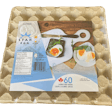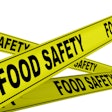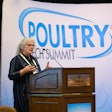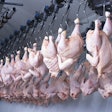
The number of people who became ill in a Salmonella enteritidis outbreak earlier announced in September has increased to 38, according to the U.S. Food and Drug Administration (FDA).
FDA, along with the Centers for Disease Control and Prevention (CDC) and state and local partners, are investigating the multi-state outbreak which has been linked to shell eggs from Gravel Ridge Farms of Cullman, Alabama.
The FDA and Alabama Department of Agriculture and Industry began conducting an inspection at Gravel Ridge Farms on September 5, and collected environmental samples for testing. The results were used to confirm that Salmonella enteritidis isolates collected from environmental and egg samples taken at the farm were genetically related to isolates obtained from ill persons.
A recall of shell eggs from Gravel Ridge Farms was initiated on September 8. At the time of the recall, 14 people had become ill.
The recalled eggs were distributed between June 25 and September 6. The eggs were packaged in a cardboard container and were sold primarily in restaurants and retail stores in Alabama, Georgia and Tennessee, including select Piggly Wiggly, Western Market and Warehouse Discount Grocery locations. The packaging for the recalled eggs includes the UPC code 7-06970-38444-6.
FDA offers recommendations
The FDA is advising consumers not to eat the recalled shell eggs. Those who have purchased the eggs should either discard them or return them to the store where they were purchased for a refund. The agency further advises that consumers who have any Gravel Ridge Farms eggs in their refrigerator should dispose of them.
The agency also suggest that restaurants and retailers who have served any potentially contaminated or recalled products need to be concerned about cross–contamination of food processing equipment and the food processing environment. They should follow the steps below:
- Wash and sanitize display cases and refrigerators regularly.
- Wash and sanitize cutting boards, surfaces, and utensils used to prepare, serve, or store food.
- Wash hands with hot water and soap following the cleaning and sanitation process.


















